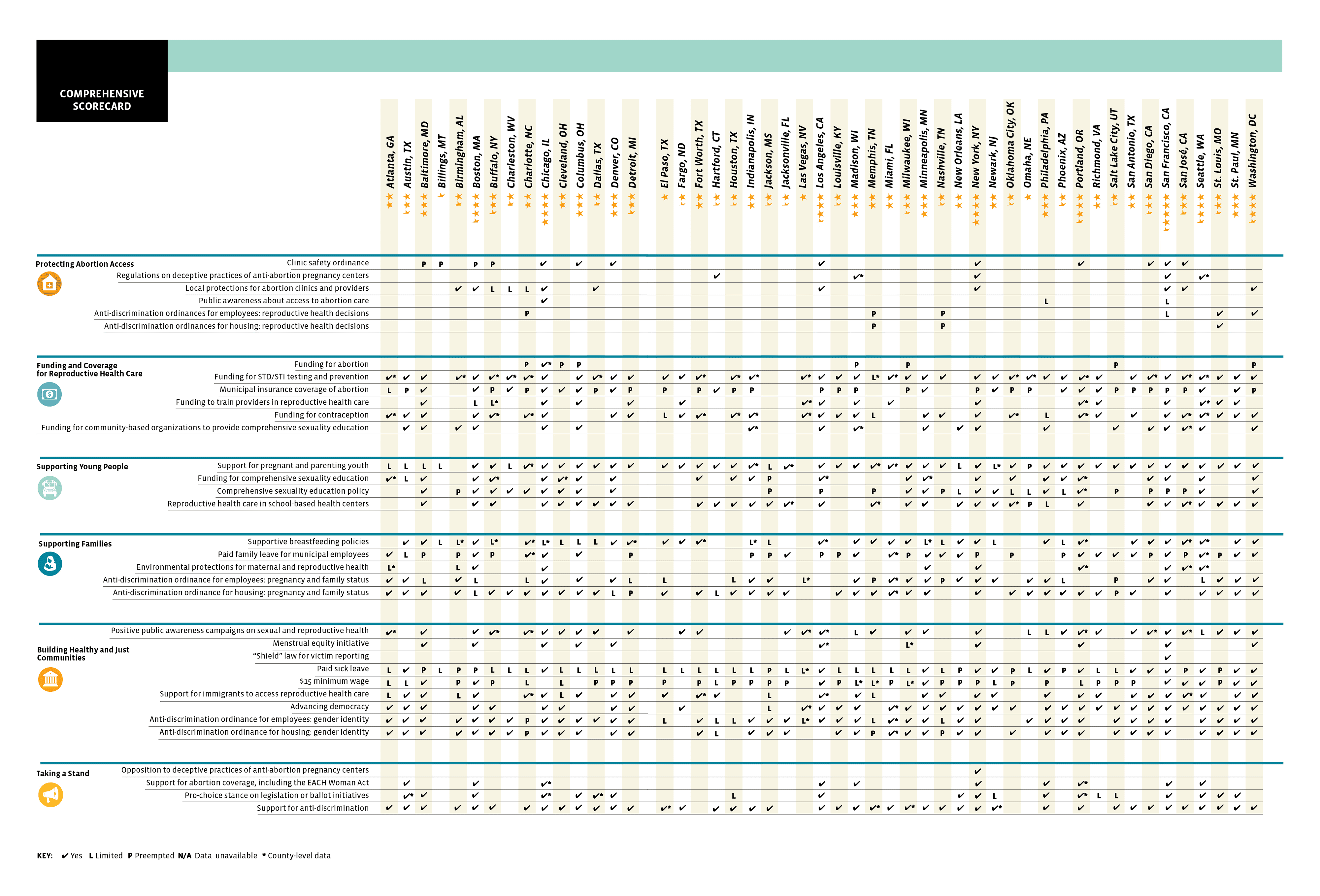
Vasyl Dolmatov

Audio By Carbonatix
In a state where everyone’s blind, the one-eyed cities are kings, or something like that. That’s the big takeaway from a new study from the National Institute for Reproductive Health. Texas’ cities, the only places in the state where women can actually seek out a legal abortion, lag behind cities around the country when it comes to guaranteeing their residents’ reproductive rights.
According to the study, which evaluates cities on criteria like protecting abortion access, funding and insurance coverage for reproductive care, supporting families and young people, and taking political stands in favor of abortion access, Austin provides the most supportive environment for reproductive health in the state. Texas’ capital, basically a socialist breakaway republic to hear state leaders tell it, wins 2½ of the 5 stars on offer from the survey.

National Institute for Reproductive Health
The news just gets worse from there. San Antonio and Fort Worth come in next at 2 out of 5 stars while Dallas finishes a half-star back, tied with Houston for fifth among Texas’ biggest cities. Dallas and Houston bested only El Paso among Texas cities included in the survey. San Francisco and New York received 4 and 4½ stars, respectively, to lead the list.
So what gives for Dallas?
Some of Dallas’ low grade can be blamed on the state. The city, for instance, can’t implement a $15 minimum wage – which the study says leads to more health and just communities – because the state says it can’t. Same goes for providing insurance coverage for city employees seeking an abortion.
There are still things, however, that the city could do to make itself a more hospitable place for abortion rights, according to the study. Dallas, for instance, could take action against the crisis pregnancy centers that dot the city. The centers, many of which receive state funding, are made to look just like an abortion clinic. They do not offer abortion services. Instead, they try to steer anyone who comes through the door to carry their pregnancy to term.
Dallas has eight crisis pregnancy centers and only three health clinics that provide abortions. Additional steps the city could take to reinforce reproductive health in Dallas include offering paid family leave for city employees and funding public information campaigns about how to access family-planning services in the city, according to the study.
Andrea Miller, the president of the National Institute for Reproductive Health, stressed the importance of cities taking action to improve their residents’ reproductive rights.
“From reducing barriers to abortion care to ending discriminatory insurance practices to advancing democracy, U.S. cities are leading a national countermovement and showing communities everywhere the power and importance of electing local leaders who will use their positions of power to embrace reproductive freedom – especially in the face of growing attacks from the federal government and a number of state governments,” Miller said in a statement.
“We need leaders who understand that a properly functioning healthcare system includes all your qualified providers.” — Kelly Hart
While it’s true that there are some actions Texas cities can take to help those who might seek an abortion – Austin recently passed a city ordinance to fund abortion access, but not abortion itself – the web of state law meant to limit women’s access to healthcare means that change at the state level is needed as soon as possible, according to abortion rights advocates.
“We need leaders who understand that a properly functioning healthcare system includes all your qualified providers working together without restrictions to provide the biggest possible coverage of services,” Kelly Hart, the senior director of public affairs for Planned Parenthood of Greater Texas, told the Observer earlier this year.